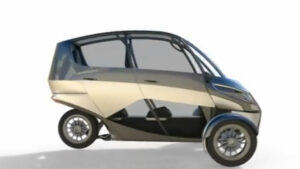A HOUSE of Representatives committee on Tuesday approved a bill that seeks to extend the road users’ tax to include some types of “unconventional” three-wheeled vehicles, with the measure expected to generate P17 billion in revenue for the government over the next four years.
Under House Bill No. 10038, owners of such vehicles would have to pay a road user’s tax amounting to P2,080 in 2024, P2,560 in 2025, and P3,040 in 2026. The bill prescribes a 5% increase from the 2026 tax rate for the following years.
The measure sets into law a Land Transportation Office (LTO) memorandum issued four years ago prescribing tax rates on three-wheeled vehicles.
The “non-conventional” category includes three-wheeled single-chassis motor vehicles as well as light and heavy quadricycles.
“Memorandum Circular No. 2020-2227 of the LTO serves as a temporary solution in providing a framework for imposing a road user’s tax on non-conventional vehicles which do not fall under current legislation,” Rep. Jose Maria Clemente S. Salceda, who chairs the House Ways and Means Committee, said during the committee hearing.
The LTO issued the memorandum in response to the growing number of non-conventional vehicles on the roads with around 1.4 million units purchased since 2020, according to the bill’s explanatory note.
The proposed measure harmonizes the tax rate for non-conventional vehicles by charging a flat rate.
“This proposal follows the user-pay principle which recommends that road users must be charged based on the wear and tear they cause to the roads,” Department of Finance representative Charmaine B. Odicta told the panel.
Mr. Salceda also questioned the Department of Interior and Local Government (DILG) during the panel hearing, asking the department why it banned non-conventional vehicles from using national roads.
“Why (did the) DILG ban three-wheeled vehicles from the national roads unilaterally?” Mr. Salceda said.
The imposition of road user’s tax on non-conventional vehicles should allow them to use the national roads. “It… disenfranchises a significant share of both users and taxpaying vehicle owners,” Mr. Salceda said in a statement. — Kenneth Christiane L. Basilio
